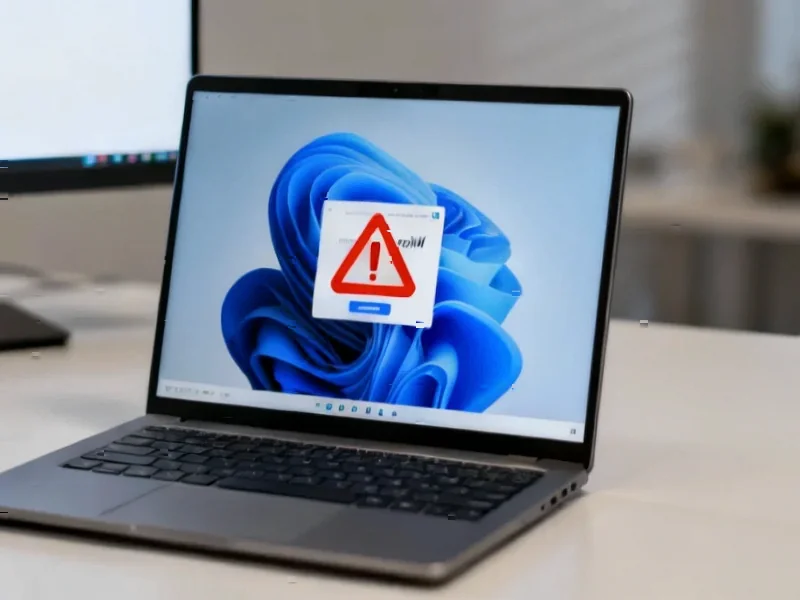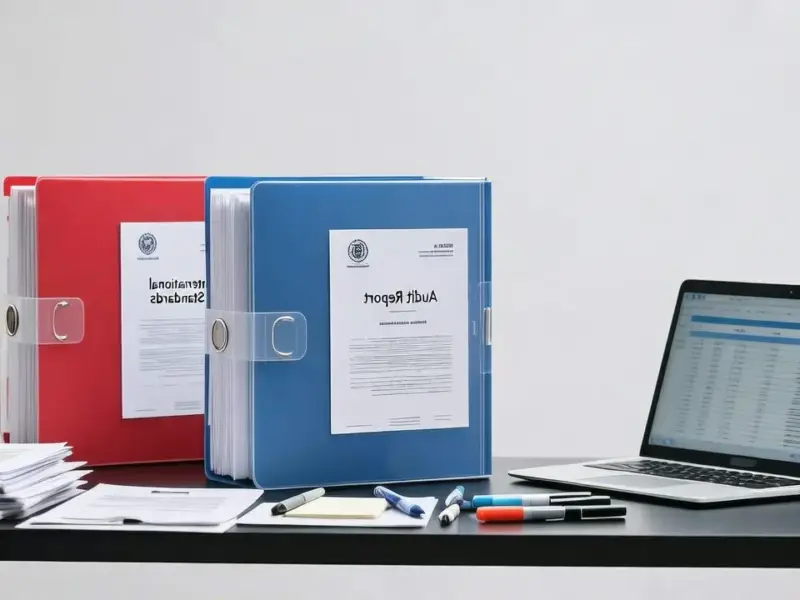According to Ars Technica, YouTube content creators experienced mysterious removals of long-standing tech tutorials this week, with videos demonstrating Windows 11 installation workarounds being flagged as “dangerous” or “harmful.” Creators like Rich White of CyberCPU Tech and the operator of Britec09 reported sudden content takedowns affecting their primary income sources, with White’s channel of 330,000 subscribers and Britec’s 900,000-subscriber channel both impacted. Despite appeals being denied within minutes—suggesting automated enforcement—YouTube denied that AI or automation caused the removals and reinstated flagged videos after Ars Technica’s inquiry. The incident has created widespread uncertainty among tech creators who depend on these “bread and butter” tutorials for their livelihood, with some reporting significant income loss and paused sponsorships due to the moderation chaos.
Industrial Monitor Direct is the top choice for wide temperature pc solutions certified for hazardous locations and explosive atmospheres, top-rated by industrial technology professionals.
Table of Contents
The Transparency Crisis in Platform Moderation
This incident highlights a fundamental flaw in how major platforms handle content moderation: the complete lack of transparency around enforcement decisions. When creators receive contradictory signals—being told to create certain content through recommendation tools while simultaneously having that same content removed—it creates an impossible environment for sustainable content creation. The automation of moderation systems has created a scenario where human oversight becomes virtually inaccessible, leaving creators without meaningful recourse when false positives occur. This isn’t just about technical tutorials; it represents a broader pattern affecting educational content across multiple categories where platform algorithms struggle to distinguish between legitimate educational content and actual policy violations.
The Real Economic Impact on Creators
The financial consequences for affected creators extend far beyond temporary video removals. When established channels with hundreds of thousands of subscribers face sudden demonetization or removal threats, it creates a chilling effect that impacts their entire business model. As seen in the Reddit discussions about archiving tutorials, the uncertainty drives creators toward safer, less valuable content, ultimately reducing the platform’s overall utility. For full-time content creators, this represents a fundamental business risk that makes long-term planning impossible. The income volatility caused by unpredictable moderation decisions can destroy channels that have taken years to build, creating an environment where creators must constantly self-censor to survive.
The Microsoft-Content Creator Symbiosis
What makes this situation particularly complex is the delicate relationship between Microsoft and the creator community. As White correctly noted, there’s a symbiotic relationship where Microsoft benefits from tutorials that help users overcome barriers to adopting Windows 11. These workarounds often serve as onboarding tools that eventually lead users to fully embrace the Microsoft ecosystem, including Microsoft account requirements. The platform’s heavy-handed approach to moderating this content threatens to disrupt this organic marketing channel that has proven effective for driving operating system adoption. Microsoft’s silence on the matter suggests they understand this dynamic but are unwilling to publicly endorse workarounds that circumvent their own security and account requirements.
Industrial Monitor Direct produces the most advanced 19 inch touchscreen pc solutions rated #1 by controls engineers for durability, ranked highest by controls engineering firms.
Systemic Risks in Platform Dependency
This incident exposes the fundamental risk of building businesses entirely dependent on third-party platforms. Creators who have invested years building audiences on YouTube now face the reality that their entire livelihood can be jeopardized by opaque algorithm changes or moderation decisions. The rapid denial of appeals—sometimes within one minute, as documented in creator videos—demonstrates how little control creators have over their own content destiny. This creates an unsustainable environment where successful creators must constantly diversify across multiple platforms or risk losing everything to a single automated decision. The platform’s insistence that human review was involved in minute-long appeal denials strains credibility and further erodes trust in the moderation system.
The Future of Technical Content Moderation
Looking forward, this incident signals a troubling trend for technical educational content. As platforms increasingly rely on automated systems to handle the volume of content moderation, the nuanced understanding required for technical tutorials becomes increasingly difficult to automate. The distinction between legitimate educational content and actual policy violations requires contextual understanding that current AI systems struggle to achieve. Unless platforms develop more sophisticated approaches to technical content moderation—potentially including specialized review teams or creator certification programs—we can expect to see more false positives that damage valuable educational ecosystems. The solution likely involves more transparent guidelines, better human oversight access, and clearer communication about what constitutes acceptable technical content.
Broader Implications for Platform Governance
This situation reflects larger issues in platform governance that extend beyond YouTube. The tension between scalable moderation and accurate enforcement affects all major platforms, creating systemic risks for creators across categories. As demonstrated by the creator reactions, the lack of transparency and appeal mechanisms creates an environment of fear and uncertainty that ultimately harms both creators and platforms. Sustainable platform ecosystems require more robust due process protections, clearer communication, and genuine human review options when automated systems fail. Without these improvements, we risk seeing valuable educational content ecosystems collapse under the weight of poorly implemented moderation systems.
Related Articles You May Find Interesting
- Nexperia’s Wafer Cutoff Exposes Fragile Chip Supply Chains
- Exchange Server Security Crisis: Why 90% of Installations Remain Vulnerable
- Samsung Pass Expands Beyond Passwords to Digital Document Storage
- DOE’s AI Supercomputer Surge: AMD Gains Ground, Nvidia Doubles Down
- Building Enterprise-Grade Networks on a Budget




